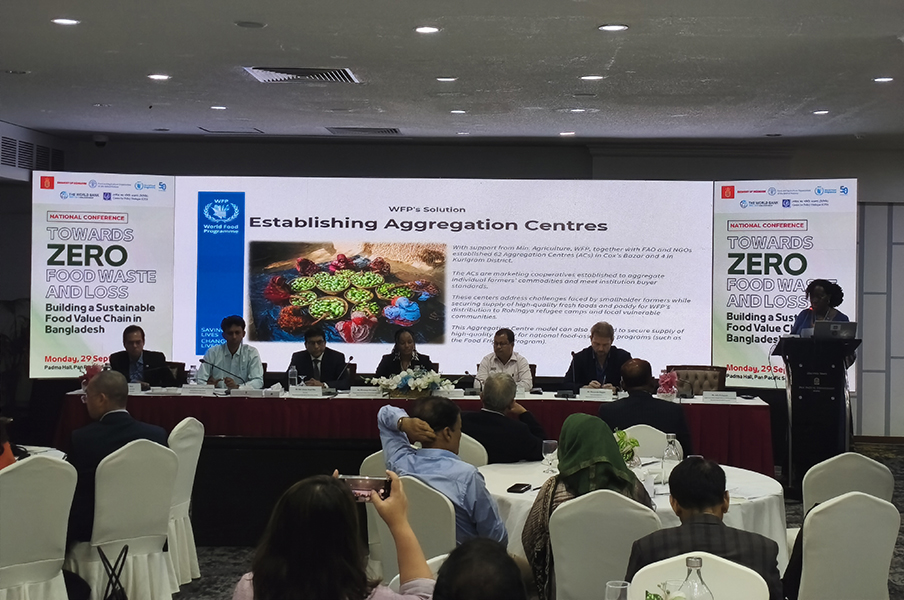One-third of Bangladesh’s farm produce lost before reaching consumers, experts warn

Published :
Updated :

Bangladesh loses about 34 per cent of its farm produce before it reaches consumers—an amount equivalent to 4.0 per cent of the country’s GDP.
Experts warn that such massive losses undermine food security, drive up prices, and damage the environment.
The figures were revealed on Monday at a national conference titled “Towards Zero Food Waste and Loss: Building a Sustainable Food Value Chain in Bangladesh”.
The event, organised by the Centre for Policy Dialogue (CPD), the Embassy of Denmark, the World Bank, and the Food and Agriculture Organisation (FAO), was held at a city hotel to mark the International Day of Awareness of Food Loss and Waste.
CPD Executive Director Dr Fahmida Khatun chaired the inaugural session. Fisheries and Livestock Adviser Farida Akhter, Denmark’s Chargé d’Affaires Anders Karlsen, Additional Secretary of the Food Ministry Mohammed Yasin, WFP Deputy Country Director Jesse Wood, FAO Deputy Representative Dia Sanou, and Ispahani Agro Director Fawzia Yasmin also spoke at the event, among others.
Speakers noted that food is wasted at nearly every stage of the value chain—from harvesting and handling to transport, storage, and retail. Perishable items such as fish, fruit, and vegetables are the hardest hit due to inadequate cold storage, poor rural roads, and a lack of modern market facilities.
They stressed that food waste reduces farmer incomes while fuelling inflation in urban areas. Rising fuel and transport costs, the dominance of middlemen, and weak coordination among government agencies further aggravate the problem.
The conference called for urgent investment in cold storage facilities, collection hubs near farms, and improved logistics. Speakers also urged incentives for private sector participation and stronger government measures across agriculture, commerce, and transport.
Organisers warned that reducing food waste is vital, as 31 per cent of Bangladeshis face food insecurity and 66 per cent cannot afford a healthy diet.
They called for coordinated action, improved data collection, and pilot projects that can be scaled up nationwide.
tonmoy.wardad@gmail.com


 For all latest news, follow The Financial Express Google News channel.
For all latest news, follow The Financial Express Google News channel.